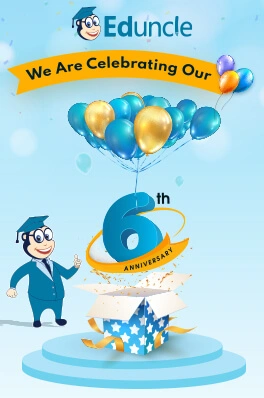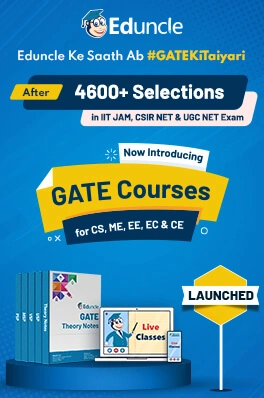Time management is very much important in IIT JAM. The eduncle test series for IIT JAM Mathematical Statistics helped me a lot in this portion. I am very thankful to the test series I bought from eduncle.
Nilanjan Bhowmick AIR 3, CSIR NET (Earth Science)
H
Hanna Ngomdir posted an Question
January 28, 2021 • 03:12 am
![]() 30 points
30 points
- UGC NET
- English
Does eduncle books are sufficient for preparing ugc net
Does EDuncle books are sufficient for preparing UGC NET in English Subject
1 Answer(s)
Answer Now
- 0 Likes
- 1 Comments
- 0 Shares
-
S
T
Do You Want Better RANK in Your Exam?
Start Your Preparations with Eduncle’s FREE Study Material
- Updated Syllabus, Paper Pattern & Full Exam Details
- Sample Theory of Most Important Topic
- Model Test Paper with Detailed Solutions
- Last 5 Years Question Papers & Answers
Sign Up to Download FREE Study Material Worth Rs. 500/-

















Sapare bhavani bai![best-answer]()
Yes but if you want you can refer the following books I am providing a list of the best books that you can, without any hesitation, buy and read for the NET as well as for general understanding of Literary Studies itself. British Literature: The Routledge History of Literature in English, Ronald Carter and John McRae, 3rd edition, 2016. (Or) The Short Oxford History of English Literature, Andrew Sanders, 3rd edition, 2004. American Literature: A History of American Literature, Richard Gray, Blackwell, 2nd edition, 2011. Indian Literature in English: A Concise History of Indian Literature in English, Arvind Krishna Mehrotra, Orient Blackswan, 2011. Literary Criticism: There are 3 very good histories of Literary Criticism published at different times. I. Literary Criticism: A Short History by Wimsatt and Brooks, 1957, Oxford IBH. II. A History of Literary Criticism by Harry Blamiers, 1991, MacMillan. III. A History of Literary Criticism and Theory: From Plato to the Present by M.A.R. Habib, Blackwell, 2005. If you want the latest, try the last. Literary terms: A Glossary of Literary Terms by M.H Abrams is both basic and fundamental. The Penguin Dictionary of Literary Terms and Literary Theory, 5th edition by Cuddon and Habib, is the most comprehensive and absolutely inexpensive. Every literature student should have it. Genres: This area is unfortunately most neglected by literature students. Try to read (for drama) The Elements of Drama by J.L Styan, CUP, 1960, and An Anatomy of Drama by Martin Esslin, Hill & Wang, 1976. (For poetry/Prosody) Poetic Meter and Poetic Form by Paul Fussell, Revised Edition 1979, McGraw Hill, and The Language Poets Use by Winifred Nowottny, The Athlone Press, 2000. (For novel) Aspects of the Novel by E.M. Forster, Penguin Classics, 2005. For Rhetoric read, Figures of Speech: 60 Ways to Turn a Phrase by Arthur Quinn, Gibbs M Smith Publishers, 1982, and Rhetoric: A Very Short Introduction by Richard Toye, OUP, 2013.